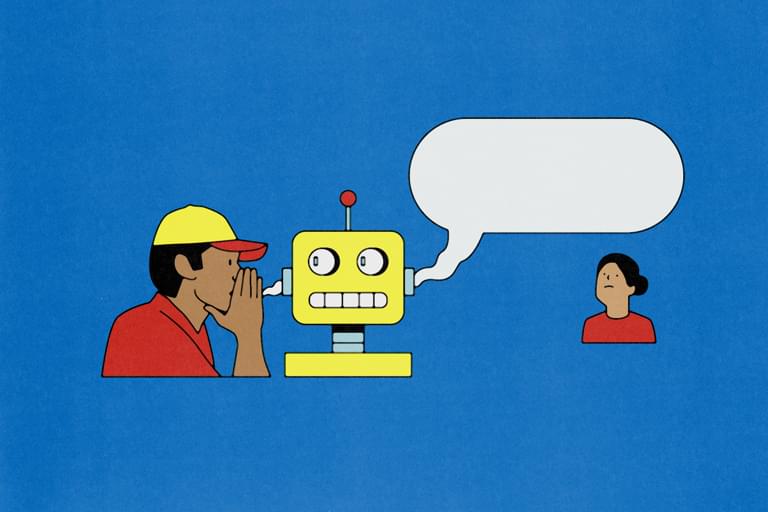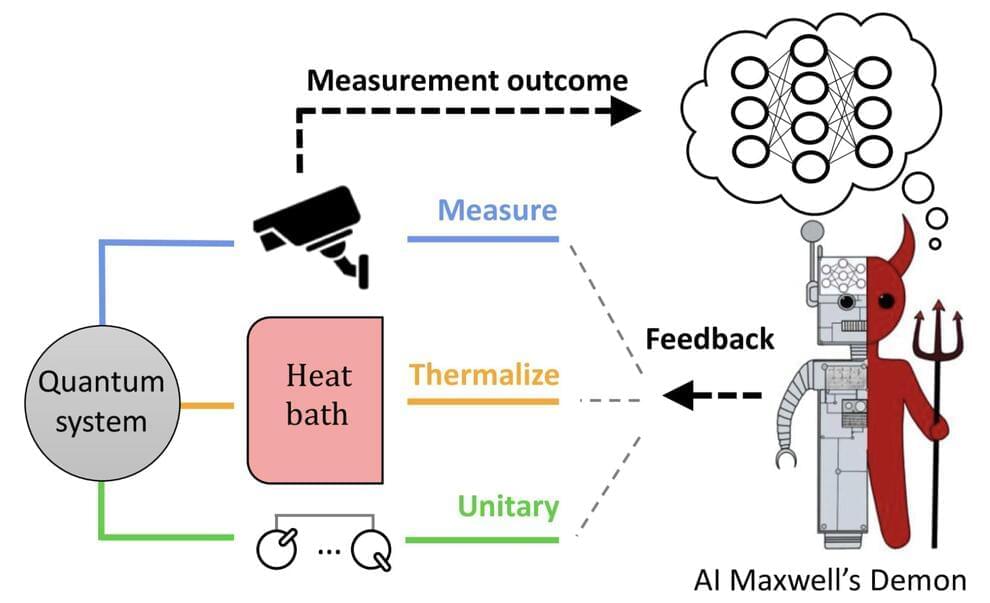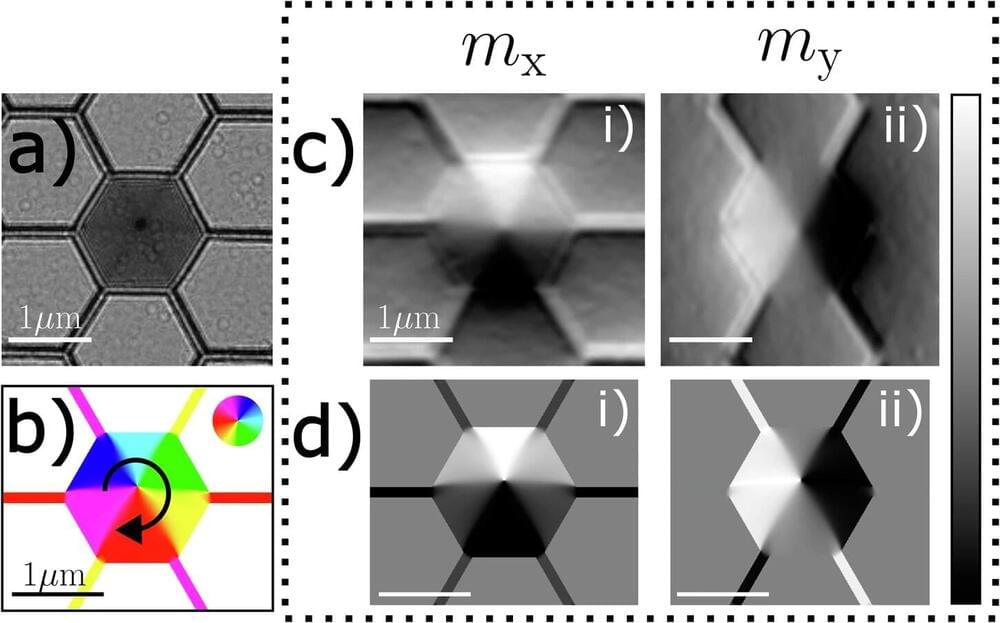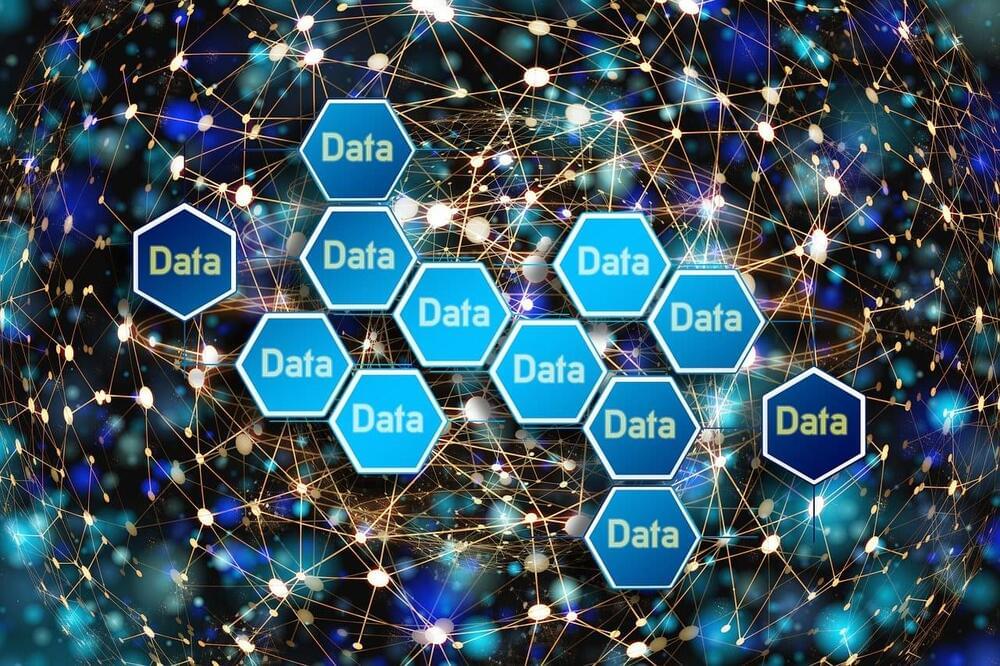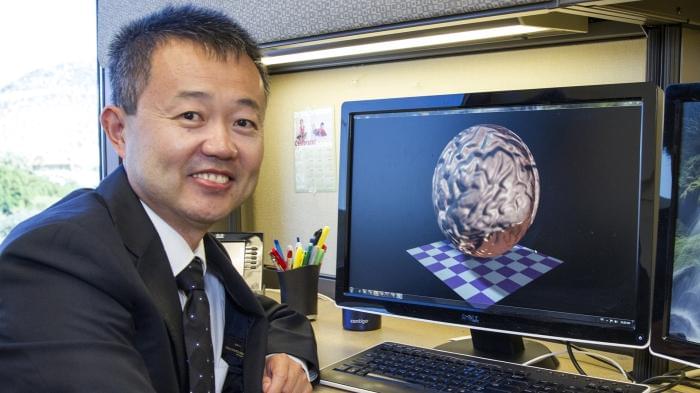Archive for the ‘robotics/AI’ category: Page 62
Oct 4, 2024
AI assistants are blabbing our embarrassing work secrets
Posted by Shubham Ghosh Roy in category: robotics/AI
Oct 4, 2024
AI can reduce a 100,000-equation quantum problem to just 4 equations
Posted by Arthur Brown in categories: information science, quantum physics, robotics/AI
The Hubbard model is a studied model in condensed matter theory and a formidable quantum problem. A team of physicists used deep learning to condense this problem, which previously required 100,000 equations, into just four equations without sacrificing accuracy. The study, titled “Deep Learning the Functional Renormalization Group,” was published on September 21 in Physical Review Letters.
Dominique Di Sante is the lead author of this study. Since 2021, he holds the position of Assistant Professor (tenure track) at the Department of Physics and Astronomy, University of Bologna. At the same time, he is a Visiting Professor at the Center for Computational Quantum Physics (CCQ) at the Flatiron Institute, New York, as part of a Marie Sklodowska-Curie Actions (MSCA) grant that encourages, among other things, the mobility of researchers.
He and colleagues at the Flatiron Institute and other international researchers conducted the study, which has the potential to revolutionize the way scientists study systems containing many interacting electrons. In addition, if they can adapt the method to other problems, the approach could help design materials with desirable properties, such as superconductivity, or contribute to clean energy production.
Oct 4, 2024
Researchers Summon AI-powered Maxwell’s Demon to Find Strategies to Optimize Quantum Devices
Posted by Cecile G. Tamura in categories: quantum physics, robotics/AI
Artificially intelligent Maxwell’s demon for optimal control of open…
A team of researchers used reinforcement learning (RL) to optimize feedback control strategies in quantum systems.
Oct 4, 2024
Open-Ended AI: The Key to Superhuman Intelligence?
Posted by Dan Breeden in category: robotics/AI

Prof. Tim Rocktäschel, AI researcher at UCL and Google DeepMind, talks about open-ended AI systems. These systems aim to keep learning and improving on their own, like evolution does in nature.
TOC:
00:00:00 Introduction to Open-Ended AI and Key Concepts.
00:01:37 Tim Rocktäschel’s Background and Research Focus.
00:06:25 Defining Open-Endedness in AI Systems.
00:10:39 Subjective Nature of Interestingness and Learnability.
00:16:22 Open-Endedness in Practice: Examples and Limitations.
00:17:50 Assessing Novelty in Open-ended AI Systems.
00:20:05 Adversarial Attacks and AI Robustness.
00:24:05 Rainbow Teaming and LLM Safety.
00:25:48 Open-ended Research Approaches in AI
00:29:05 Balancing Long-term Vision and Exploration in AI Research.
00:37:25 LLMs in Program Synthesis and Open-Ended Learning.
00:37:55 Transition from Human-Based to Novel AI Strategies.
00:39:00 Expanding Context Windows and Prompt Evolution.
00:40:17 AI Intelligibility and Human-AI Interfaces.
00:46:04 Self-Improvement and Evolution in AI Systems.
Continue reading “Open-Ended AI: The Key to Superhuman Intelligence?” »
Oct 4, 2024
MIT spinoff Liquid debuts non-transformer AI models and they’re already state-of-the-art
Posted by Genevieve Klien in category: robotics/AI
The startup from MIT’s CSAIL says its Liquid Foundation Models have smaller memory needs thanks to a post-transformer architecture.
Oct 4, 2024
Hexagonal magnetic defects could lead to energy-efficient neuromorphic computing
Posted by Saúl Morales Rodriguéz in categories: futurism, robotics/AI
Artificial intelligence applications are experiencing a boom and expected to be mainstream technologies in the near future. However, these applications run on classic computing hardware and are extremely power-hungry.
Oct 3, 2024
Researchers reveal first full passages decoded from famously inscrutable Herculaneum scrolls
Posted by Shubham Ghosh Roy in category: robotics/AI
With the help of AI, 15 passages have been deciphered from a 2,000-year-old unrolled Herculaneum scroll, providing a glimpse into the thoughts of an ancient philosopher.
Oct 3, 2024
How Big Data is Saving Earth from Asteroids: A Cosmic Shield
Posted by Eamon Everall in categories: information science, robotics/AI, space
As technology advances, Big Data will play an increasingly important role in protecting Earth from asteroids. By harnessing the power of data analytics, AI, and machine learning, scientists can monitor and predict asteroid movements with greater accuracy than ever before. This enables us to develop early warning systems and potentially deflect asteroids before they can cause harm. Aspiring data scientists interested in contributing to such significant fields can gain the necessary skills by enrolling in a data science course in Chennai, where they can learn to utilize these advanced tools and techniques.
Oct 3, 2024
AI Innovations in Diagnosing Myopic Maculopathy
Posted by Laurence Tognetti, Labroots Inc. in categories: biotech/medical, information science, robotics/AI
What methods can be developed to help identify symptoms of myopia and its more serious version, myopic maculopathy? This is what a recent study published in JAMA Ophthalmology hopes to address as an international team of researchers investigated how artificial intelligence (AI) algorithms can be used to identify early signs of myopic maculopathy, as left untreated it can lead to irreversible damage to a person’s eyes. This study holds the potential to help researchers develop more effective options for identifying this worldwide disease, as it is estimated that approximately 50 percent of the global population will suffer from myopia by 2050.
“AI is ushering in a revolution that leverages global knowledge to improves diagnosis accuracy, especially in its earliest stage of the disease,” said Dr. Yalin Wang, who is a professor in the School of Computing and Augmented Intelligence at Arizona State University and a co-author on the study. “These advancements will reduce medical costs and improve the quality of life for entire societies.”
For the study, the researchers used a novel AI algorithm known as NN-MobileNet to scan retinal images and classify the severity of myopic maculopathy, which currently has five levels of severity in the medical field. The team then used deep neural networks to determine what’s known as the spherical equivalent, which is how eye doctors prescribe glasses and contacts to their patients. Combining these two methods enabled researchers to create a new AI algorithm capable of identifying early signs of myopic maculopathy.

